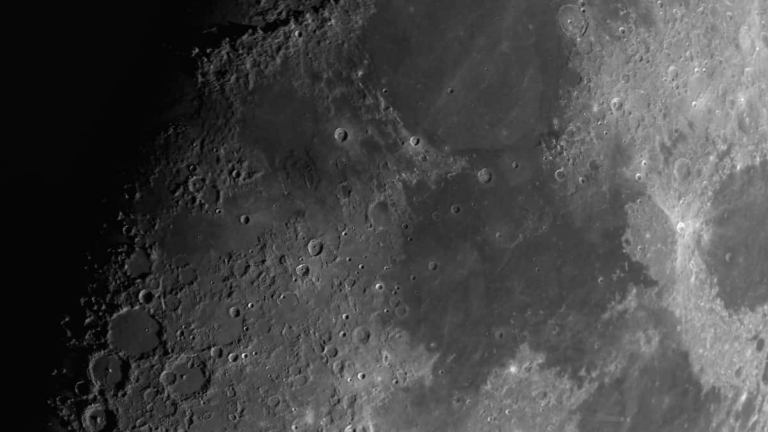
[ad_1]
The COVID-19 pandemic and the subsequent lockdowns had a significant impact on the surface temperature of the Moon, an astonishing study published by Indian scientists in Monthly Notices of the Royal Astronomical Society has claimed.
The study, conducted using the data from NASA’s Lunar Reconnaissance Orbiter (LRO) concluded that an “anomalous” decrease of 8-10 Kelvin was observed in night-time surface temperatures on the Moon during the strictest lockdown period from April to May 2020.
“The Moon has possibly experienced the effect of COVID-19 lockdown, visualized as an anomalous decrease in lunar night-time surface temperatures during that period,” the study stated.
Researchers K Durga Prasad and G Ambily attributed the dip in lunar surface temperature to reduction in Earth’s outgoing radiation during the lockdowns. Due to drastic decrease in human activity during the lockdown, there was significant reduction in greenhouse gas emissions and aerosols — leading to less heat being trapped and re-emitted by Earth’s atmosphere.
Study methodology
To conduct the study, the scientists elected six distinct sites on the nearside of the Moon with a surface area ranging from 900–2500 square kilometres. The sites were selected based on the following criteria:
- The site should be relatively flat
- It should be within an equatorial or mid-latitude region
- The site should be of an optimum size
Using the Diviner Lunar Radiometer (DLRE) instrument onboard NASA’s LRO, the scientists analysed the surface temperature. Night-time surface temperatures from DLRE for six diverse sites on the Moon were analysed through 2017–2023, covering the periods before, after and during the COVID-19 lockdown, to look for any lockdown-induced subtle signature.
As per the scientists, 2020 saw the coldest temperatures across most sites, with a noticeable warming trend in 2021 and 2022, once human activity resumed on Earth.
The study stated that based on the findings, Moon-based observatories can become potential tools for observing Earth’s environmental changes which needs to be explored extensively.
(With inputs from agencies)
[ad_2]
)